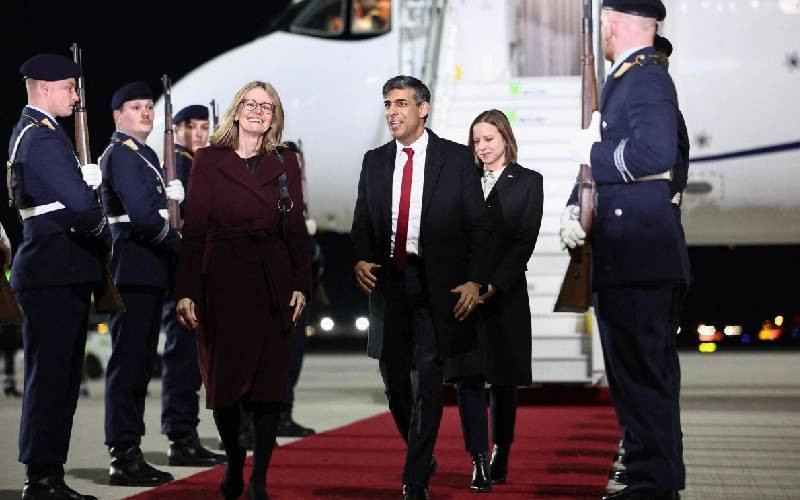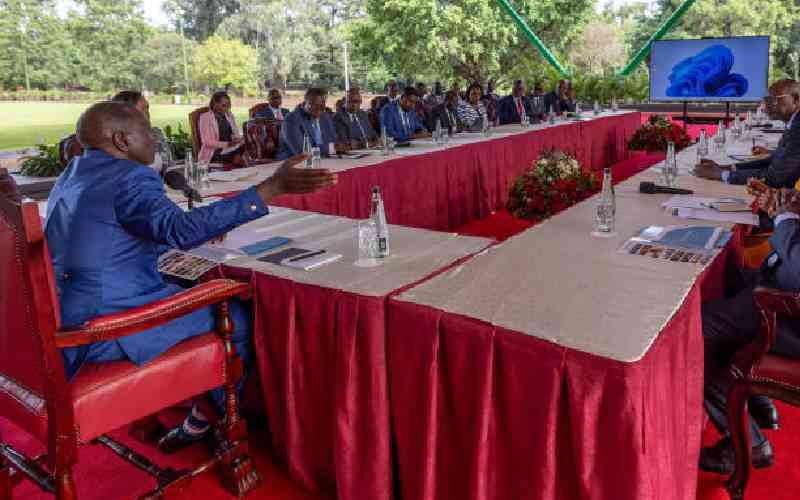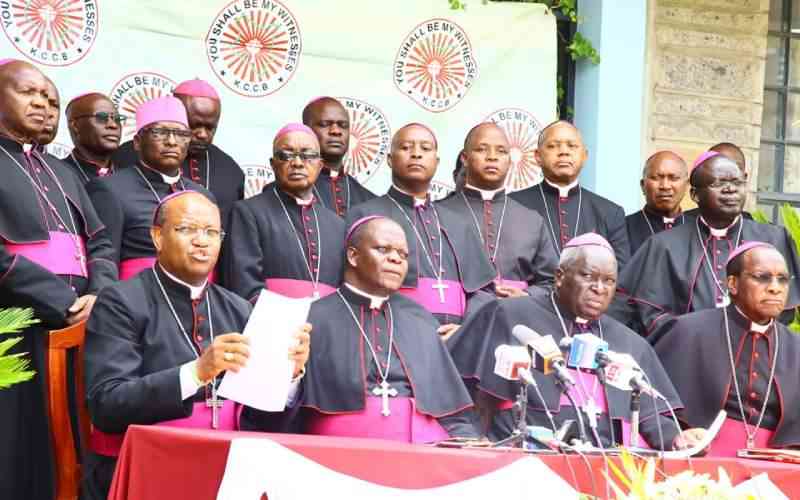Kenya: The Jubilee government has read its second Budget, which was much anticipated because of the prevailing political circumstances. The Budget was not too surprising, the sectors we expected to get the lion’s share of funds, like education and security, got it.
The Budget has one interesting but positive line: money for the vulnerable. We have argued for a long time that the measure of a country’s level of progress is not how well it pampers its elite, but how well it takes care of its disadvantaged, from the orphans to the disabled and the jobless.
Welfare state
One MP even argued that Kenya should become a welfare state. Maybe soon. We hope that in future budgets, some money will be set aside for the unemployed so that they can buy food and other essentials. If the envisaged digital registration is done well, we could use that data to ferret out the needy in society.
Giving money to the unemployed would lead to a drastic reduction in crime. The feeling that someone cares would divert many people from crime; the feeling of neglect drives lots of crime. No wonder men are the main victims of crime — they are famous for neglecting their children born out wedlock (who coined this word?) and their families.
Focusing on the vulnerable could be seen as part of Americanising our economy, the same way we got governors and secretaries from the US, where social welfare is a key plank of socio-economic policy. Social welfare is also common in Scandinavian countries, but they have higher tax rates.
The Budget contained another interesting proposal: making primary and day secondary education free by 2016. That would be a great achievement.
If we reduced the wastage at both levels, lots of young men and women would get a chance to make their contribution to economic growth. By ensuring more Kenyans attain at least a high school education, we get another positive consequence — a reduction in population growth rate. There is no better contraceptive than education.
Security perception
Tourism is another area that got a boost. It needs it. I am writing this piece from Mombasa and a visit to the beaches indicates we need to boost this sector. Apart from encouraging domestic tourism, we can improve the perception of security and stop making bad news our headlines. Most visitors and even foreign governments use our media as their first source of information.
The Budget balanced between the soft issues like education and welfare against hard issues like railways and roads. That balance should be retained in future budgets. We hope that the money allocated to all the sectors will be fully absorbed; returning money to the Treasury slows down the economy.
Spending money (in the right way) creates demand for goods and services, therefore, more jobs. That is why in advanced countries, workers are paid twice a month to ensure that consumption continues and the economy does not suffer a slump like Kenya’s in mid-month when traffic jams disappear.
Surprising thing
Enough on the expenditure part of the Budget.
The most surprising thing about the Budget is leaving taxes intact. Many Kenyans are already speculating that there must be hidden taxes. I shall not join them. With the Budget reaching Sh1.8 trillion, most Kenyans expected taxes to go up to finance the increased demand for revenue. Is Treasury Cabinet Secretary Henry Rotich a wizard to avoid tax hikes?
Stay informed. Subscribe to our newsletter
First, it makes a lot of political sense to keep taxes low. One suspects the opposition was waiting for higher taxes. This is not the best time to raise taxes. So how will the same tax rate lead to higher revenues?
First, the lack of a tax increase will make Kenyans feel good and that could lead to more consumption and more VAT. It feels like getting a bonus. The increased spending creates a momentum, which, if sustained, can lead to more tax revenues.
Alice Laffer offered the other explanation through the famous Laffer’s curve. She showed that if you keep increasing tax rates, you get more revenues up to a certain optimal rate, after which high rates lead to lower taxes as businesses and individuals feel burdened. They start looking for ways to avoid taxes; they could even close businesses and relocate to other countries.
Have we reached the top of Laffer’s curve? Politically, the answer could be yes. However, we need further analysis to determine the optimal tax rate. Would the Government collect more tax with a VAT rate of 12 per cent instead of 18 per cent? Any econometrician looking for a PhD topic?
The Jubilee Government, like Kibaki’s before it, took pride in financing the Budget from internal sources, which is seen as a sign of independence. However, borrowing is an acceptable source of financing.
The Eurobond sounds like a great idea so that local banks can reduce their appetite for Government papers (Bonds, T-Bills, etc) and direct that money to the private sector, the engine of economic growth. Check how much the US borrows from China and Japan.
Lessons from rotich
It is hoped that in crafting their budgets, the county governments are learning from Rotichnomics, a variant of Uhurunomics, with emphasis on economic stimulation, welfare and belief in ourselves.
Finally, I refuse to join the pessimists; the future is bright and if each of us played his or her part, either as an institution or an individual, there is no reason we cannot transform Kenya into a vibrant economy in my lifetime (do not ask me my age, but I never saw the Union Jack come down).
The writer is a senior lecturer at University of Nairobi’s School of Business. [email protected]
 The Standard Group Plc is a
multi-media organization with investments in media platforms spanning newspaper
print operations, television, radio broadcasting, digital and online services. The
Standard Group is recognized as a leading multi-media house in Kenya with a key
influence in matters of national and international interest.
The Standard Group Plc is a
multi-media organization with investments in media platforms spanning newspaper
print operations, television, radio broadcasting, digital and online services. The
Standard Group is recognized as a leading multi-media house in Kenya with a key
influence in matters of national and international interest.
 The Standard Group Plc is a
multi-media organization with investments in media platforms spanning newspaper
print operations, television, radio broadcasting, digital and online services. The
Standard Group is recognized as a leading multi-media house in Kenya with a key
influence in matters of national and international interest.
The Standard Group Plc is a
multi-media organization with investments in media platforms spanning newspaper
print operations, television, radio broadcasting, digital and online services. The
Standard Group is recognized as a leading multi-media house in Kenya with a key
influence in matters of national and international interest.









